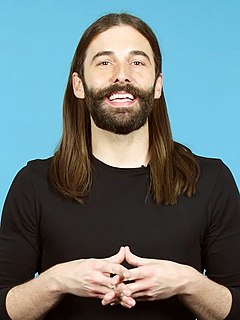A Quote by Janet Mock
This pervasive idea that trans women deserve violence needs to be abolished. It’s a socially sanctioned practice of blaming the victim. We must begin blaming our culture, which stigmatizes, demeans, and strips trans women of their humanity.
Related Quotes
I think it's really important to champion stories from trans women and trans women of color. That demographic has gone unheard and unsupported for so long, and it's really the community that's struck the hardest by a lot of issues. I try to do a lot of work to champion trans feminine issues and stories, but that said, I do have a personal and deep investment in seeing trans masculine stories reflected in culture. It is a little disappointing to me that trans men and trans masculine people have not really been part of this media movement that we're experiencing right now.
I am a trans woman. My sisters are trans women. We are not secrets. We are not shameful. We are worthy of respect, desire, and love. As there are many kinds of women, there are many kinds of men, and many men desire many kinds of women, trans women are amongst these women. And let’s be clear: Trans women are women.
We love trans women; all of us know that drag wouldn't be an art form without trans women. I know that, RuPaul knows that, everybody in the gay community knows that. Trans women have always been a part of and the face of drag. And I can guarantee trans women will always be a part of 'RuPaul's Drag Race.'
When you hear anyone policing the bodies of trans women, misgendering and othering us, and violently exiling us from spaces, you should not dismiss it as a trans issue that trans women should speak out against. You should be engaged in the dialogue, discourse, and activism that challenges the very fibers of your movement.
































